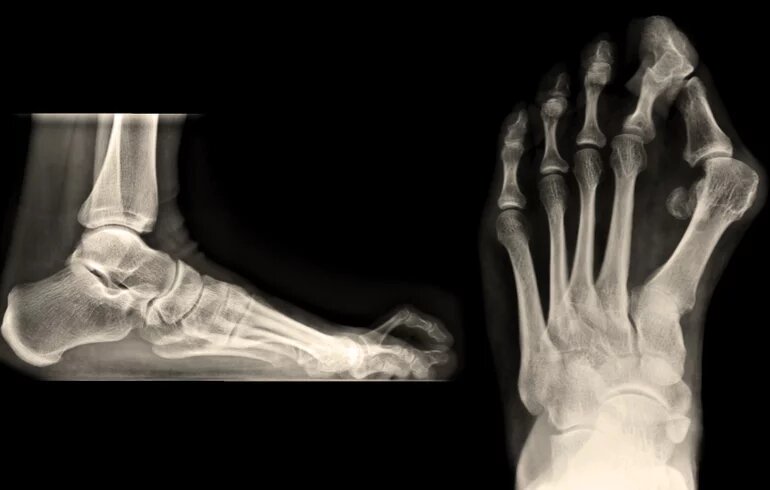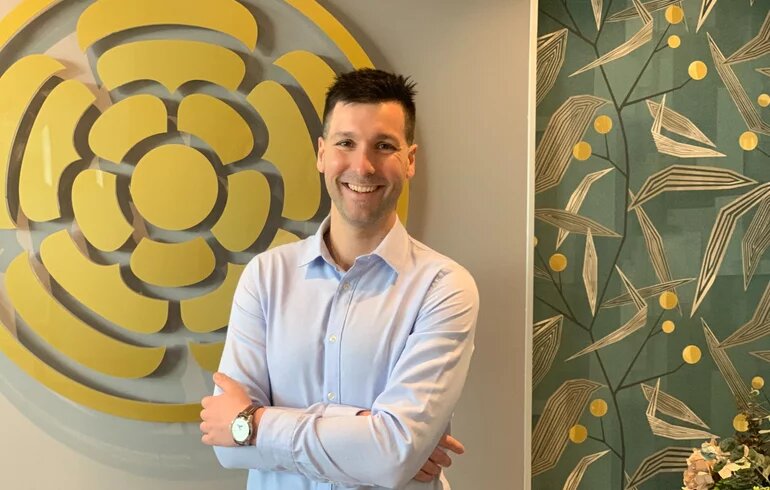Orthopedic specialty
Orthopedics is focused on the treatment of congenital and acquired disorders of the musculoskeletal system. Musculoskeletal disorders include diseases of the bones and joints of the limbs, some muscular disorders, and disorders of the spine and the soft tissues surrounding the vertebrae. The orthopedic specialist uses both conservative - i.e. non-surgical - and surgical methods of treatment. Today's sedentary lifestyles and the high proportion of sedentary people mean that spinal and other musculoskeletal problems are occurring earlier and earlier. Often, these changes are not yet painful, but it is worth consulting a specialist as soon as possible to prevent more serious problems later on.
When should you see an orthopedic specialist?
You should see a specialist for any musculoskeletal complaints that involve restricted movement, joint fluid retention and/or persistent pain. Most commonly:
- For acute and chronic back pain. Spinal pain can be caused by a number of problems, from scoliosis to disc herniation and lumbar spinal stenosis. Fortunately, most surgeries can be avoided with early detection and effective treatment, but it is important to see an orthopaedic specialist early. At our private hospital, we will assess the condition of your spine and help you recover by setting up the right treatment plan.
- For acute and chronic joint pain and movement restrictions. Joints need regular maintenance, otherwise pain and limited mobility can occur. However, in addition to a sedentary lifestyle, overuse of joints can also lead to complaints, so if you are suffering from joint pain, the first thing to do is to find the source of the problem. Our doctors will help you recover by setting up a personalised treatment plan following a preliminary assessment.
- When joint instability or sports injuries are detected. Unfortunately, sometimes, even with the most thorough warm-up and the most careful attention, sports accidents still happen. Although it is usually just a simple muscle strain, in some cases partial or complete muscle tears can make life miserable for athletes. In such cases, the most important thing is to start rehabilitation as soon as possible to ensure that the injured muscles and joints recover quickly. Our aim is to get you back to exercise as soon as possible and minimise the chance of future sports injuries.
- For deformities caused by rheumatic diseases. The term rheumatism refers to a variety of musculoskeletal conditions. These problems can not only cause pain and difficulty in movement, but can also lead to severe deformities. Untreated rheumatism or prolonged inflammation can lead to visible deformities and severe joint deterioration. Our orthopedic specialists can help you to identify the problem and provide you a complete and effective treatment.
- For pain caused by static or postural abnormalities. Bad posture, scoliosis, flat or even bulging backs can cause pain after a while. It is therefore important to correct the abnormality and learn the principles of correct posture. Whether you work sitting or standing, we will teach you the exact posture that is gentle on your spine. With the help of our experts, we will help you step by step to ease the pain and help you recover.
- If you have a gait disorder. One of the most common gait disorders is claudication, which can be caused by pain in the lumbar spine or lower limbs, as well as birth defects and joint instability. The first step is always to identify the cause of the gait disorder, and then we will draw up an individualised treatment plan. We will analyse your gait in detail, so that we can even identify any musculoskeletal conditions that may not cause you pain at first but could eventually become a problem.
- For muscle aches, tendonitis and other soft tissue complaints. Often a careless movement can cause muscle pain or tendonitis, but there may also be a more serious underlying musculoskeletal condition. At our specialist orthopedic clinic, we can shed light on the causes of your complaints and help you recover with a personalised treatment plan.
What happens during an orthopedic examination?
During the examination, the specialist first thoroughly interviews the patient about his or her congenital or inherited diseases, contingent surgeries and diseases that have occurred in the family. He then asks about current complaints: the severity, frequency, exact location, duration of pain, and whether it can be linked to any activity or period. This is followed by a physical examination of the affected body part. The specialist first examines with the naked eye to see if any abnormalities are visible, and then checks the function, stability and load-bearing conditions of the affected limb. To make an accurate diagnosis, where necessary the specialist may specify additional examinations: MRI or CT scans, x-rays, ultrasound, lab tests.
How should I arrive for the examination?
To perform the physical part of the orthopedic examination, the complainant's affected body part must be exposed, so it is advisable to arrive in clothing that can be easily removed and donned. For the first consultation the patient should bring all their previous medical records, especially the results of orthopedic examinations. In the case of previous scans and x-rays, please bring both the result and the image.
Why choose Dr. Rose Private Hospital?
- Skilled specialists, modern diagnostic and therapeutic equipment. In our orthopedic department, our aim is to provide comprehensive patient care, the highest quality of treatment and fast and effective rehabilitation.
- Personalized care. At our orthopedic clinic, we create an individual treatment plan for each patient, taking into account their individual needs, condition and objectives, to achieve maximum results in the treatment of musculoskeletal problems.
- An empathetic, person-centered approach. Our practitioners always keep the patient's comfort and safety in mind, and work hard to create a supportive and reassuring environment throughout the healing process.
If you have any musculoskeletal complaints, please feel free to contact the doctors at Dr. Rose Private Hospital.


